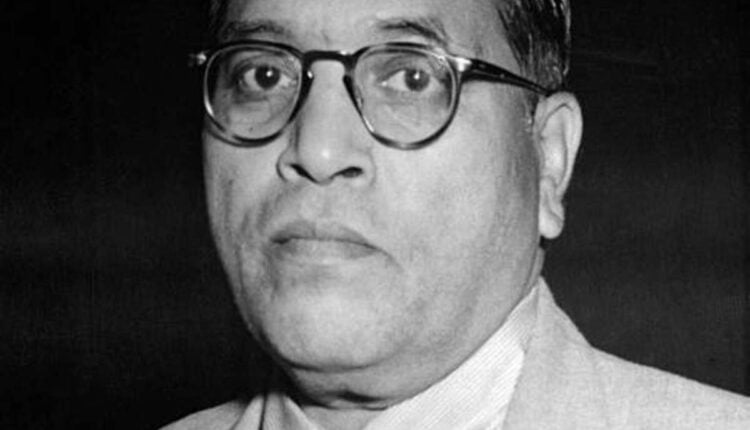This article aims to provide you with information on Dr. B R Ambedkar. It includes his childhood and education, His views on law, and his work toward constitutional democracy. This article also discusses how Ambedkar’s work affected society as a whole. You will be able to identify with the struggles of his life and how they affected his views and actions.
dr BR Ambedkar’s family
Dr. Bhimrao Ambedkar’s family was a well-known political figure in India. His father had given him several alternative surnames, including Bhim, Bhima, and Bhimabai. These names were later changed to their last name, Dr. Bhimrao R. Ambedkar, after his father changed them. His family was well-known in India and the rest of the world.
The Ambedkar family includes his children Ashok, Prachi, and Rashmi. His grandchildren include Bhimrao Ambedkar’s sister, Hritika, and Dilip. His daughter Anandraj Ambedkar and his son Aman were also prominent social activists. The children of Anandraj and Babasaheb Ambedkar include Sandesh Ashok Ambedkar and Sujet Prakash Ambedkar.
Ambedkar’s education
Dr. B R Ambedkar’s education was impressive. He had four doctoral degrees and studied several European languages. He also knew a few Indian languages, including Sanskrit. He had enough knowledge to write a Pali language dictionary. Moreover, he was the first Indian from south Asia to receive a Ph.D. in Economics. He was only twenty-four years old when he wrote a paper on castes in India, challenging several well-known scholars of the day.
During his childhood, Dr. B R Ambedkar lost his mother. His family moved to Mumbai in 1897. The community he came from was untouchable, and his family was forced to stay in Satara until he turned 16. The family was then forced to live in the city. When he was fifteen, he married Ramabai, a neighbor, and went to school.
His views on law
The Hindu Code Bill is one of the most notable examples of Ambedkar’s progressive views on the law. It aimed to provide a civil code in place of Hindu personal law, which had been altered only modestly by British authorities. Ambedkar’s proposal, however, met with resistance from many leaders in the country and ultimately stalled in Parliament. However, the UCC created several essential changes in Indian society, including introducing divorce in a civil marriage.
After India achieved independence, Ambedkar was invited to serve as the Law Minister of the Dominion of India. He was also appointed as the chairman of the Drafting Committee for the Constitution of the future Republic of India just two weeks later. He also delivered a speech at a mass conversion ceremony.
His work on constitutional democracy
Ambedkar influenced the constitution-making process in India in several ways. He was the constitution’s chief drafting officer and addressed the joint session of the Indian Parliament. In one of his speeches, Ambedkar referred to himself as the head of the Constitution-making process, and he is considered the father of the Indian Constitution. A recent article by Martha Nussbaum, entitled ‘The Importance of Ambedkar in the Constitution-Making Process,’ asserted that Ambedkar’s presence as the head of the drafting process conferred legitimacy to the Indian Constitution. As a result, the Indian Constitution has become known as ‘Ambedkar’s Constitution.
In this essay, Ambedkar emphasized the need for a democracy that does not result in widespread social inequality and an oppressed class. Democracies can only function when there are no glaring social inequalities. Unfortunately, increasing socio-economic inequalities are destroying democracy and making it a hollow vessel.
His relationship with Mahatma Gandhi
While Mahatma Gandhi is often associated with non-violence, Dr. Ambedkar questioned the whole fuss. He argued that Gandhi borrowed the Buddha’s principles of non-violence and truth. Only ignorant fools would credit Gandhi for creating these principles. Truth and non-violence are needed for human civilization, but Gandhi did not invent them.
Despite these differences, their relationship was far from antagonistic. During the Indian independence movement, Gandhi praised Ambedkar for his courage and commitment. Ambedkar’s vision for India included the removal of caste and sex discrimination. Ambedkar said that if Gandhi dedicated himself to the welfare of the poor, he would be our hero.
While the two men had many similarities, their approaches to social change differed. Ambedkar was firmly against monism, which he believed entailed self-centredness and heartlessness. Instead, he advocated Buddhist philosophy, which taught compassion and love. Gandhi, on the other hand, supported socialism and believed that the work of the government would benefit the lower castes. In addition to a radically different approach to social change, both men were committed to parliamentary democracy.

